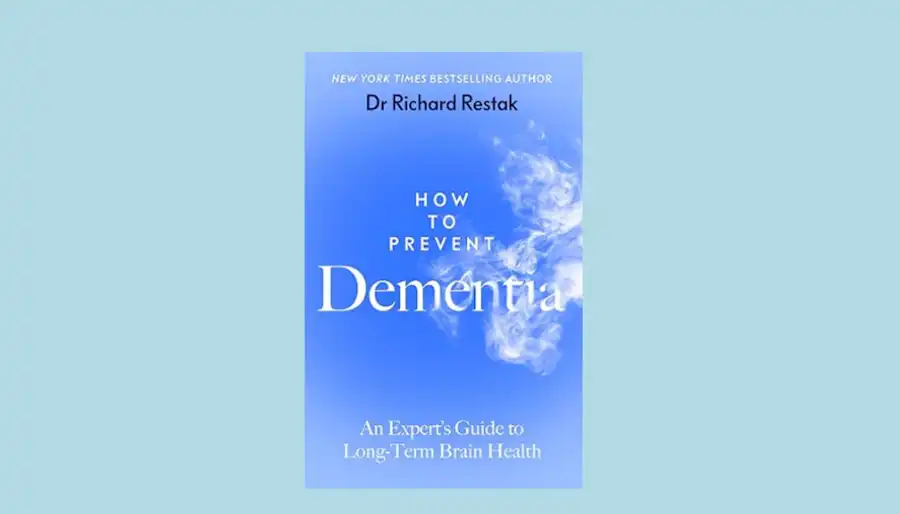Book Review: How to Prevent Dementia
28 August 2024

The KOPI Book CLUB!
As an Osteopath, I specialise in the bio-mechanics of the beautiful human body. I am the eternal student of the body, an absolute privilege.
My book reviews are written to help you better understand and nurture your physical body. I hope you enjoy reading them, and if you have any books to suggest, I would be very interested to hear about them.
Book Review: How to Prevent Dementia - An Expert’s Guide to Long-Term Brain Health by Dr Richard Restak.
"Whether you are a cognitive scientist, an interested student, a worried elder, or simply a curious reader, you are likely to marvel at and possibly enhance your mnemonic skills"
- Howard Gardner, Hobbs Research Professor of Cognition and Education, Harvard University.
This is the hardest to write about of all the books I have reviewed. I believe that this is because we know the word Dementia, as well as the disease progression, and if I am honest, we fear it for ourselves, as well as our loved ones.
The condition is unbiased (look at the fantastic Robin Williams and Bruce Willis) despite having genetic links, unbelievably cruel to the patient as well as their family and is on the rise - According to the WHO, Alzheimer’s ranks as the seventh leading cause of death globally. By 2050, or earlier in the absence of a breakthrough, the number of people aged 65 and older with Alzheimer’s is projected to reach 12.7 million.
I have been privileged over the years of being an Osteopath where patients have spoken to me about their spouses, parents, siblings, and friends and the effect that Dementia has taken – it is heartbreaking to hear. However, I feel so blessed to be trusted with the depth of emotion I experienced.
This book not only arms the reader with practical steps they can take to prevent or delay Dementia onset; it also shows the reader what Dementia does to the brain and how the patient feels about themselves.
Dr Restak also provides an interesting history of Alzheimer’s and other Dementias and, importantly, details how to differentiate between them. The Dementias exist on a progressive scale, and by understanding some (super simple) steps we can all take to lessen the odds of developing the disease, it all then feels less anxiety-inducing.
Some of the tips will seem obvious: good sleep hygiene, ensuring you have a good diet, regular exercise, and, of massive importance, maintaining social networks and intellectual stimulation (seriously, study that interest, learn all that you can about it, go to lectures/talks on things that interest you)—this is nothing you have not heard before as it benefits so many systems in your body. Other tips were more surprising.
The most surprising risk factor for me was hearing loss. Those with decreased hearing experience a word differently than the speaker intended, meaning the whole conversation could be affected.
Dr Restak stresses that “hearing loss is the single largest potentially modifiable risk factor for dementia, responsible for up to 8% of dementia cases” and “those with moderate to severe hearing loss over age 65 showed a 61% higher prevalence of dementia compared to those who had normal hearing”.
The takeaway is that if you are over 65, get your hearing checked, and if you need hearing aids, wear them. Doing so may just save your memories.
Other tips included memory games. Dr Restak details how he learns new words every day and ways to memorise his shopping list in a fun way. He stressed the importance of remaining curious throughout life. This could mean reading books on a wide variety of topics, all of which exercise the frontal and temporal regions of the brain.
What is most encouraging is how Dr. Restak challenges the reader with the statement, “The older I get, the more useless I feel.”
Neuroscience is showing that unhealthy psychological states can lead to one or more of the brain changes that are seen in the brains of Alzheimer's patients.
Neuroscience has also shown that increasing self-reflection practice leads to increased glucose metabolism in the temporal lobes—the opposite of what is seen in Alzheimer’s Disease.
This means that self-reflection is backed by solid science and helps mitigate the risk of developing Alzheimer’s. This is massively encouraging—you can boost the health of your brain by thinking positively. Please read that again. And again.
Whilst there is not yet a known cure for Alzheimer’s and other Dementias, there are medications that can slow the progression, and further research is being conducted on a vast scale.
The most important thing is our relationship with ourselves and our bodies—this is the single most significant influence you can exert on risk mitigation.
We can’t mitigate all the risks (such as genetics) – but we can follow current healthy lifestyle advice and set an example that hopefully encourages those around us to do the same.
Life is to be lived and enjoyed – so take that new class, learn a new language, challenge your memory skills, spend time with younger people, get curious, get your hearing tested (if applicable), and live a life that interests you.
Emily